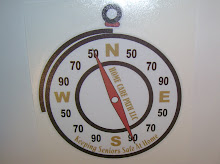Hospitals that are Medicare and Medicaid certified continue to incorporate strategies to maintain the flow of revenue while managing the consumer populations risk to harm. Even with advanced training and access to multiple diagnostic testing tools, predicting patient outcomes can be somewhat risky.
Hospital staff are consistently challenged to comply with Medicare admission guidelines while assuring patient safety in a ever shortening frame of time. Recall the number of Medicare eligible consumers continues to rise daily in the United States. The medical industry currently encourages less time with the provider per patient as a way to address the increased usage.
When hospital staff are treating a patient who's symptoms do not seem to completely meet Medicare admission guidelines, but clearly appears too frail to send home the person can be kept in the hospital under observational care. The patient may spend the night in bed on the med surg floor, under the watchful eye of hospital staff.
The hospital stay does not count toward the 3 day inpatient requirement to receive nursing home, rehab services. Medicare part D drug plans often will not pay for drugs prescribed in the hospital. Some hospitals will have policy that does not allow bringing drugs in. So the patient may have to pay out of pocket at the elevated hospital rate for prescribed medications.
In defense of hospital staff, they are treating a patient that falls slightly short of Medicare admitting guidelines, but seems too frail to send home. The hospital staff believe the person needs the help of an inpatient stay. This is further complicated by patient return visits. A patient sent home (discharged) and required to return shortly after for help for the same condition is not acceptable.
The hospital documentation is reviewed by a utilization committee as part of the process for complying with Medicare and Medicaid certification guidelines. The utilization committee may determine (with the advantage of knowing the outcome as time has lapsed) the patient should not have been discharged. The utilization committee could also determine an inpatient hospital admission was not appropriate and the addmitting physician should be cited and the patient should be billed.
The patient and accompanying family can always ask hospital staff if the admission is inpatient stay or observation care and how that will effect the patient. Home Care Path www.homecarepath.com believes seniors and family should continue to become informed on treatment and care as it relates to their Medicare benefit.
Home Care Path is a leading senior care provider serving south central Wisconsin. Services include:
-in home staffing for elders
-inpatient advocacy for safe successful hospital stays
-transitional counseling when more structured servic e is needed
-help with scheduled day surgery
-down sizing home contents when stuff matters
-communicate face to face on computer across long distance
Simply call 608-432-4286 to schedule and in home interview.
Email lkutzke@homecarepath.onmicrosoft.com Valuing home and human life, we can be there when you are working. 2012 rates are 20.00 per hour.
Saturday, June 9, 2012
Subscribe to:
Post Comments (Atom)

No comments:
Post a Comment